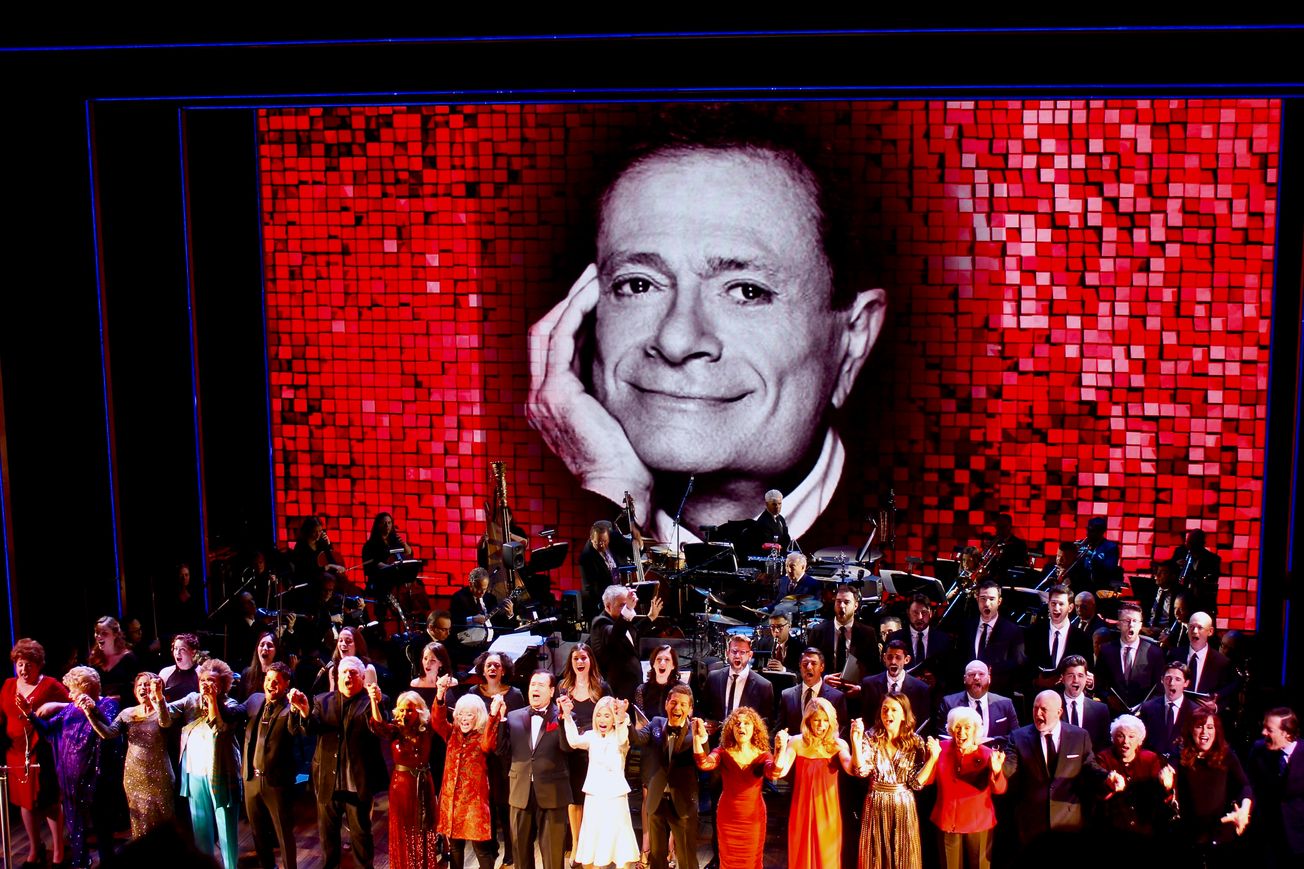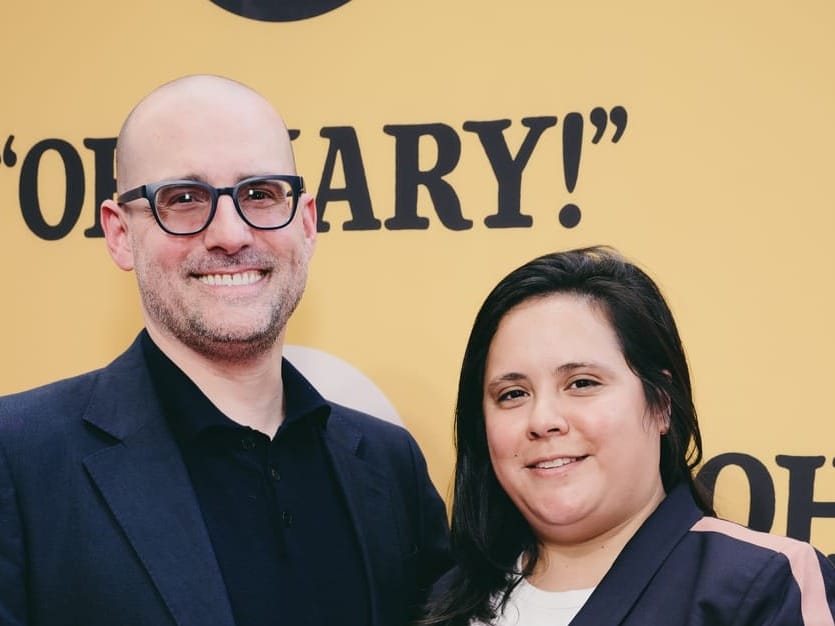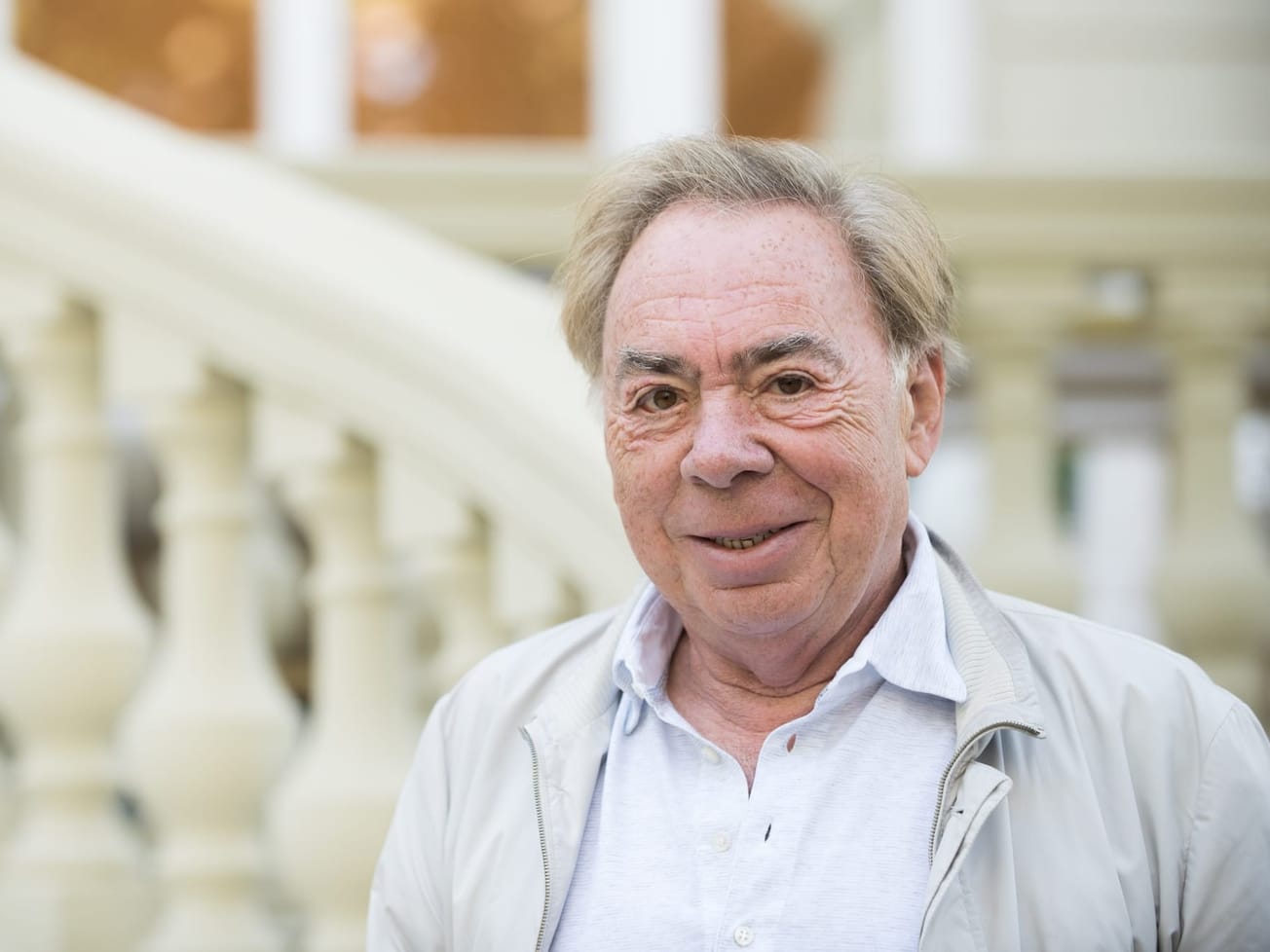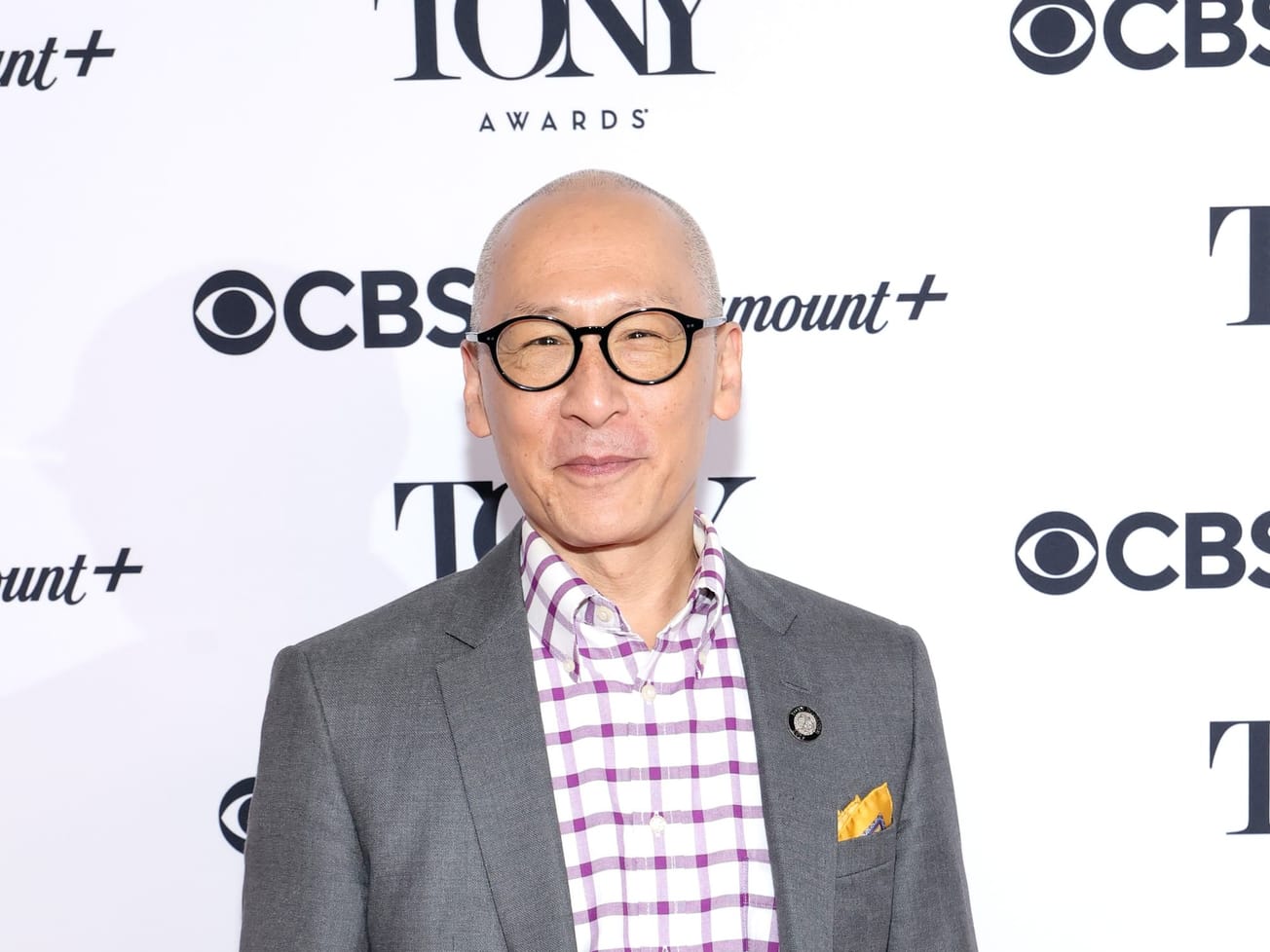“Kid, the show is yours.” The words were recalled, not sung at Monday afternoon’s tribute to the late Jerry Herman. And while they may lack the urgent iambic promise of “You charm the husk right off of the corn,” they were once spoken by the producer David Merrick and they would make the young composer-lyricist a star.
Alice Borden, who described that long-ago meeting with Merrick, was not the best-known participant in the concert. But as Herman’s friend, muse and confidant of more than seven decades, she had the goods in a program long on brassy anthems and torchy ballads, if oddly short on the kinds of revealing tales-out-of-school these memorials typically trade in.
Borden was an 8-year-old when they met; he was 19 and in the process of turning his parent’s summer camp, where her mother worked, into a cauldron for his blooming theatrical talents. When she was 20, he called with the news that Merrick had asked him to write a few songs on spec for a musical version of “The Matchmaker.” She had two days to learn four of them.
“On Monday morning, we took the small elevator in the Sardi’s building up to the great Mr. Merrick’s office,” she told the packed orchestra at the Lunt-Fontanne Theatre. “Everything was in red. And he was an imposing presence. Jerry and I sang the four songs and when we were done, Mr. Merrick stood up and said, ‘Kid, the show is yours.’” It wasn’t until they exited onto West 44th Street that they let loose with whoops and hollers. “The rest is history,” Borden understated.
A fair representation of that rich, musical history was on display, in a program produced by Michael Feinstein, Jane Dorian and Herman’s husband, Terry Marler. Herman died the day after this past Christmas, at 88 (“Like the number of keys on the piano,” someone noted). A rare, exuberant musicianship was in the air from the moment the 29-piece orchestra, led by Larry Blank, launched into a gorgeously orchestrated overture that would quote much of the Herman catalogue.
He made his Broadway debut in 1961 with “Milk and Honey” and followed up with Merrick’s brainstorm, “Hello, Dolly!,” along with “Mame”, “Dear World,” “The Grand Tour,” “Mack & Mabel” and “La Cage aux Folles.”
Marilyn Maye got things off to a chanteuse-y start with “It’s Today,” from “Mame,” followed by Jeremy Jordan’s suavely delivered “It Only Takes a Moment” from “Dolly.” Ron Raines led a rousing, musical 21-gun salute to “Mame” accompanied by both the orchestra (especially of note: a spectacular brass section) and a 20-member ensemble that would return later for Betty Buckley’s warm “Hello, Dolly!”
There were plenty of highlights, notably Feinstein, accompanying himself at the piano, singing “Mack & Mable’s” “I Won’t Send Roses,” Sutton Foster, resplendent in a silvery gown, singing “I Don’t Want To Know,” from “Dear World.” Kristin Chenoweth added another from the “Mame” score, “If He Walked Into My Life.” The original star of that musical, Angela Lansbury, appeared on screen with an homage, crediting Herman for kicking off her career in the theater (though she had previously appeared in Stephen Sondheim’s 1964 flop “Anyone Can Whistle” and made her Broadway debut in a 1957 farce).
Kelli O’Hara pumped the crowd with “Before The Parade Passes By.” Jason Graae, a Herman favorite, did a funny, Borscht-beltian bit involving an oboe before singing “You I Like,” from “The Grand Tour.” Tyne Daly and Klea Blackhurst traded barbs with “Bosom Buddies,” also “Mame.” Harvey Fierstein choked up as he recalled the never-equalled thrill of being asked by Herman to write the book for “La Cage.” And Bernadette Peters, a star of the original “Mack & Mabel,” sang that show’s lovely ballad “Time Heals Everything.”
The highest point among equals was Leslie Uggams singing that show’s anthem, “I Am What I Am,” with mesmerizing aplomb and ferocity. The crowd responded with a volcanic ovation. They also went a little wild when Don Pippin, who had a decades-long association with Herman as music director, took the baton briefly.
The producers had said that the event, unlike any other in memory, was by invitation only, a posture enforced by guards outside the house telling hopefuls to go home. As the show was about to get under way, the faithful finally were invited in, but it was too late: the 100-minute party began with an empty balcony and half-filled mezzanine.
In a film clip, Herman said, “I wrote this song in 1979 for Joel Grey to sing in ‘The Grand Tour.’” Herman added that in 2003 the song had come to have “so much deeper meaning for me.” That was an allusion to the fact that Herman was HIV positive and had survived; the song was “I’ll Be Here Tomorrow.” Knowledgable fans gasped, and sobbed, during the screening because there in his chorus, in the nightclub where it seemed to be taking place, was the late, and most beloved, Marin Mazzie, whose life was cut short by cancer in 2018. In that context, the song (“After the dark comes the dawn / I’ll be here tomorrow, alive and well and thriving / I’ll be here tomorrow it’s simply called surviving…”) was haunting.
The show, which was superbly staged by Marc Bruni, concluded with all the guests lining up to sing “The Best Of Times,” from “La Cage.” Shvitzing with optimism, it was the perfect choice.


























































